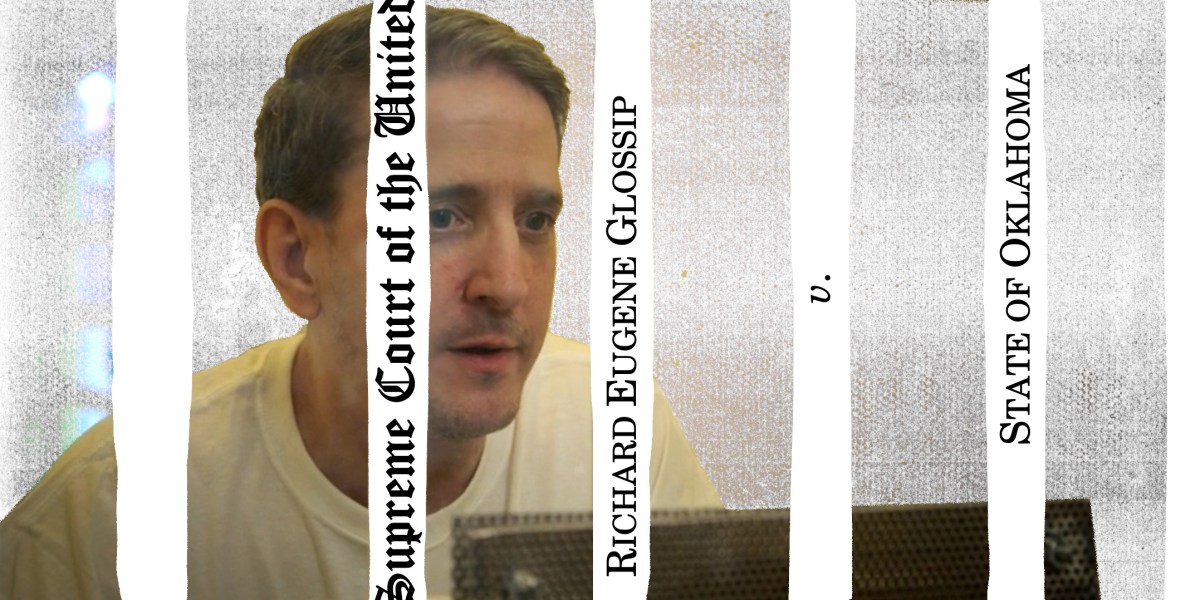Ordinarily, a state’s attorney general would be the one arguing to the high court that an execution should move forward. But since virtually the moment he took office in January 2023, Oklahoma Attorney General Gentner Drummond has taken unprecedented action to spare Glossip’s life. In Drummond’s view, the case against Glossip was so tainted by prosecutorial misconduct that his conviction should be overturned.
Drummond told the Oklahoma Court of Criminal Appeals as much last year, when he came forward to ask the court to vacate Glossip’s conviction and order a new trial. The court rejected the overture, however, clearing the way for Glossip’s execution. Glossip appealed to the Supreme Court for intervention, an effort that Drummond joined. As such, there was no one from Oklahoma arguing in favor of killing Glossip. Enter (Christopher G.) Michel, (former law clerk to Chief Justice John Roberts).
In a brief filed on July 8, Michel took on the task (of acting as advocate to deny a new trial) with gusto — even if his recitation of the facts of Glossip’s case, and of the lower court’s ruling, was misleading and incomplete. Michel argues that the court should pay no mind to Drummond’s concerns about the legality of executing Glossip. “Nothing in the Constitution compels a state court to provide a particular measure of deference to a state official’s confession of error,” Michel wrote. In other words, it doesn’t matter how flawed Drummond believes the case is, the court is under no obligation to take those concerns seriously.
“Nothing in the Constitution compels a state court to provide a particular measure of deference to a state official’s confession of error,” Michel wrote. In other words, it doesn’t matter how flawed Drummond believes the case is, the court is under no obligation to take those concerns seriously.
Well that’s a pretty fucking terrible way to look at things
If a court no longer takes the concerns of the citizens seriously, how can they still expect the citizens to take its rulings and actions seriously?
If they do not stop, they are openly acknowledging they intend to murder this man, and others, so that nobody ever has the capacity to look back and see what they’ve already done.
Burn it all down.
If a court no longer takes the concerns of the citizens seriously, how can they still expect the citizens to take its rulings and actions seriously?
“Rules for thee, but not for me” is a classic though, and it seems like a scarily large percentage of the population actually wants that to be te norm
Burn it all down.
Hear, hear!
The judiciary system in the US is insane. It’s to politicized. It’s not really weird that these thing happens in such a system…
Some would look at that and see a grievous error to correct. I guess others see an excuse.
The tricky thing here (as far as I understand it) is that the appeal to the Supreme Court is not about whether it was a good idea for the Oklahoma Court of Criminal Appeals not to vacate the conviction. It’s about whether the Oklahoma Court of Criminal Appeals did something contrary to the law when it chose not to vacate. Does that court have a legal obligation according to the Constitution to defer to the Attorney General, not just in this case but in all similar cases?
I think that it is in fact true that “Nothing in the Constitution compels a state court to provide a particular measure of deference to a state official’s confession of error.” Maybe there ought to be something like that in there but that’s not the Supreme Court’s job to decide (despite their trend of making such decisions anyway). The people of Oklahoma should have elected judges more concerned with not executing people who might be innocent.
The people of Oklahoma should have elected judges more concerned with not executing people who might be innocent.
The American judiciary seems more interested in their idea of Christian right than truth or facts.
the appeal to the Supreme Court is not about whether it was a good idea for the Oklahoma Court of Criminal Appeals
I think that it is in fact true that “Nothing in the Constitution compels a state court to provide a particular measure of deference to a state official’s confession of error.”
If this travesty counts as a due process of law then the phrase has lost all meaning.
When a court chooses to kill innocent people, what then is the difference between lawful execution and extra-judicial killings (other than semantics)?
In other words, the court is communicating that it’s OK to kill, regardless of the law. So, the problem they are creating appears to have a built-in solution.






